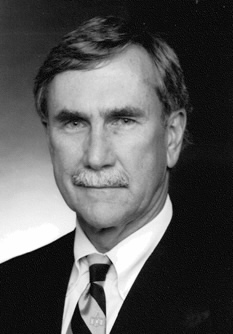PHOENIX-The speciality of head and neck surgery has come a long way. But, along with huge advances in the types of treatments available and the technologies used, the profession is facing challenges-such as the recruitment of good candidates into the field and issues related to the regionalization and globalization of care. These were the themes discussed in the Hayes Martin Lecture at the annual meeting of the American Head and Neck Society (AHNS) at the Combined Otolaryngology Spring Meeting (COSM) here.
Explore This Issue
August 2009Our specialty has evolved from an era where the therapist was a warrior with a single arrow in his quiver to one armed with many options, said Charles W. Cummings, MD, Professor of Otolaryngology-Head and Neck Surgery and Oncology at Johns Hopkins University in Baltimore. The past 60 years have seen huge advances in terms of treatment and technologies, and in many ways, all these advances make the profession more complex than the one early practitioners faced.
Today’s head and neck surgeons must be multifaceted; must be facile in molecular biology and radiobiology; must be skilled with the traditional head and neck surgical procedures as well as the less complex, robotically influenced techniques that are evolving today, he said.
The complexity of the specialty may be linked to some of the challenges in recruiting new talent. Dr. Cummings noted that although each of the last three match classes resulted in all available positions being filled, there was no surplus of candidates.
This lack of a surplus is worrying. One reason this is happening is the greater value new doctors place on lifestyle-they want a better balance between their professional lives and their personal time.
But a second reason could be that head and neck surgery has evolved into a field perceived as being a less appealing one to enter.
In some ways, head and neck surgery has evolved to represent the court of last resort, Dr. Cummings said. More often than not, the surgical patient results from a previous single or combined therapeutic failure, where surgery becomes the only option remaining. It becomes an exercise consisting of complicated procedures in a hostile environment.
 Today’s head and neck surgeons must be multifaceted; must be facile in molecular biology and radiobiology; must be skilled with the traditional head and neck surgical procedures as well as the less complex, robotically influenced techniques that are evolving today.
-Charles W. Cummings, MD
Today’s head and neck surgeons must be multifaceted; must be facile in molecular biology and radiobiology; must be skilled with the traditional head and neck surgical procedures as well as the less complex, robotically influenced techniques that are evolving today.
-Charles W. Cummings, MDThis perception could be related to what happens in training. Often, residents are not exposed to the lesser surgical procedures, such as the surgical treatment of early-stage disease, the staging of procedures prior to definitive treatment, and the like. Importantly, many residents miss out on the enduring relationships that develop with patients over time.
Leave a Reply